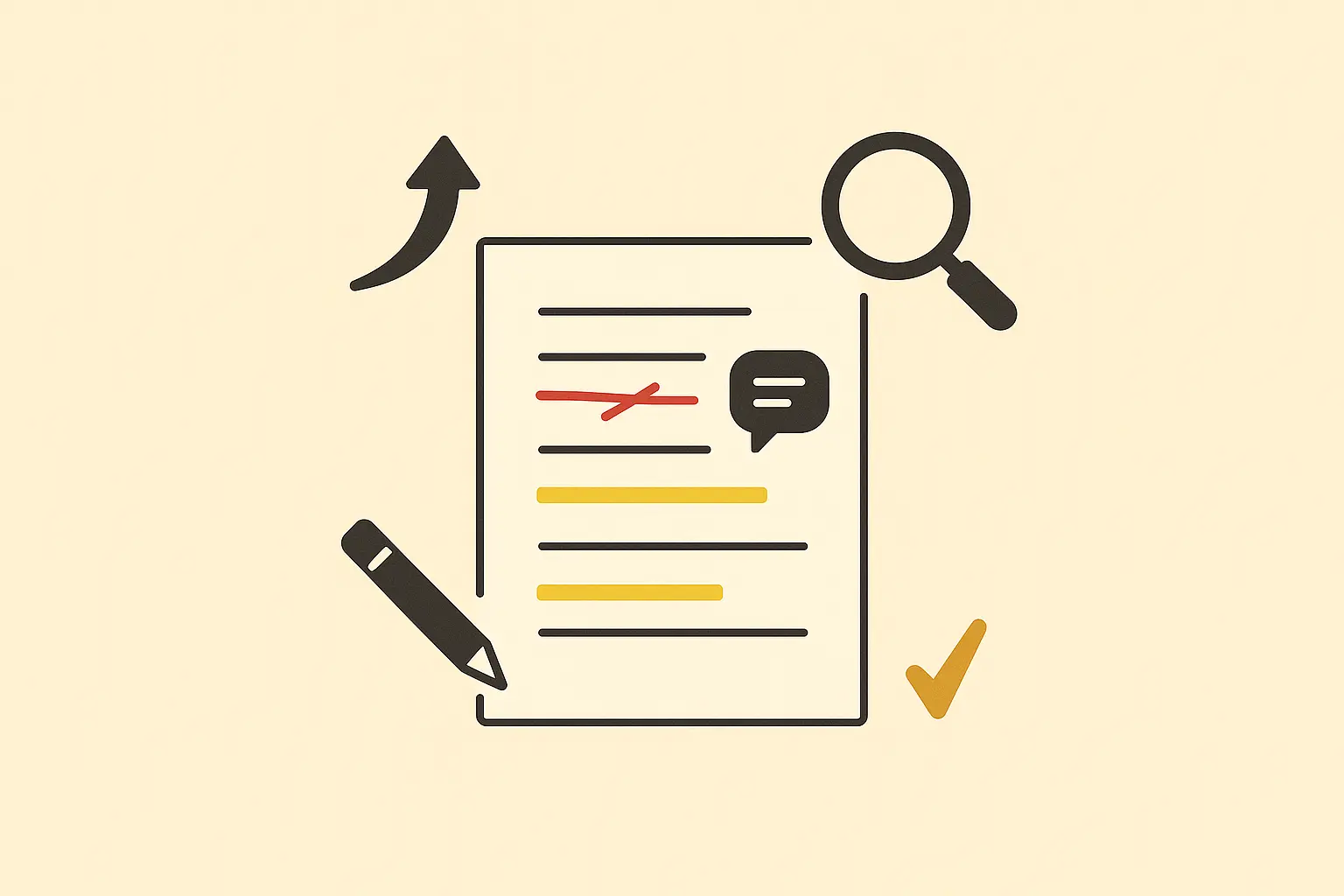Why Every Writer Needs Feedback

Whether you're revising your first draft or polishing your manuscript for submission, obtaining outside perspective is essential to ensure your story resonates with readers as intended. Feedback isn't just helpful. It's fundamental to the writing process.
In this post, you'll learn why even the best writers need feedback. Let's get started.
Understanding Your Creative Blind Spots
As the author, you know every twist, every motivation, every beat of your story. It's perfect when you're foreshadowing the real villain in chapter 2 for payoff in chapter 20, but that familiarity can also be a problem. You're too close to your work. Your mind fills in gaps that readers can't see.
Quality feedback helps you uncover plot holes you didn't notice, character arcs that fall flat or feel inconsistent, pacing issues like dragging scenes or rushed climaxes, moments that confuse or bore readers, and prose that doesn't land the way you intended.
A story that works in your head might not work on the page. Thoughtful, honest feedback closes that gap.
The Three Primary Types of Editorial Feedback
1. Developmental Feedback
This is the "big picture" critique, covering structure, plot, character arcs, worldbuilding, themes, and pacing. Based on developmental feedback, you might need to:
- Cut or add entire chapters
- Restructure scenes for better flow
- Rework character motivations
- Combine or eliminate characters
Developmental feedback shapes your story into something cohesive and compelling. It should always come before line edits or proofreading.
2. Line Editing
Also called copy editing, this process zooms in on your sentences, examining clarity and conciseness, voice and tone consistency, word choice and repetition, dialogue flow, and sentence variety and rhythm.
Line editing is where your prose becomes sharp, vibrant, and readable.
3. Proofreading
This is the final pass before publication, catching typographical errors, grammar issues, punctuation mistakes, and formatting inconsistencies.
Each type of feedback builds on the one before it. Don't try to polish your prose before your plot is working. You might end up with a chapter filled with beautiful prose, only to cut it in a future draft and waste that hard work.

Sources of Quality Feedback
Beta Readers
Beta readers are your early test audience. They tell you what works and what doesn't from a genuine reader's perspective. They typically focus on emotional reactions and overall clarity rather than technical craft elements.
Critique Partners
These are fellow writers who trade detailed notes with you. Critique partners excel at providing both developmental feedback and line-level insights. The relationship is usually reciprocal, and the insights can be invaluable for your growth as a writer.
Professional Editors
Professional editors bring deep expertise and objectivity to your manuscript. Developmental editors examine big-picture story structure, line editors refine your prose, and proofreaders polish your final draft. While editors require a significant investment, they're often the most reliable source of comprehensive, actionable feedback.
AI-Powered Feedback Tools
Modern manuscript analysis tools can now provide detailed feedback in minutes, offering critiques of structure, pacing, prose, and more. Many services offer trial options or sample critiques, making professional-quality feedback more accessible during revisions.
If you're looking for more info on how to find the right feedback, check out our detailed guide.
What Quality Feedback Can Do For Your Book
When applied thoughtfully, quality book feedback can dramatically enhance your manuscript's structure by creating well-paced plots with meaningful stakes, character development through believable arcs and consistent motivations, pacing with balanced tension and breathing room, prose quality through cleaner and more effective writing, and thematic resonance with stronger emotional payoff.
Quality feedback also teaches you to edit yourself more effectively. The more feedback you receive, the better you become at spotting issues before others do. And likewise, when you edit someone else's work, you begin noticing where your own can be improved.
Optimal Timing for Feedback
There's no single perfect moment, but here are strategic checkpoints:
- After your first draft (developmental feedback)
- After major structural revisions (second round of developmental feedback or line editing)
- Before querying agents or self-publishing (line editing and proofreading)
Get feedback early and often. Don't wait until you've polished every sentence only to discover your ending doesn't work. However, that doesn't mean you should edit every chapter as you write. As a general rule of thumb, it's often better to finish an entire manuscript before you go back and edit the first chapter. Even seasoned authors need to make structural changes. Add a piece of foreshadowing or even remove a character. Until you see the entire picture, editing as you go can end up wasting time.
Moving Forward
No matter how experienced you are, outside perspectives will always reveal things you missed. Feedback sharpens your story, strengthens your craft, and helps your book connect with real readers. And remember, at the end of the day, your story is yours. You don't have to take the suggestions you're given, but you'd be wise to consider them.

